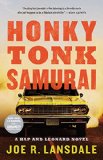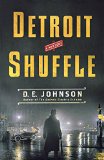Summary | Excerpt | Reviews | Beyond the book | Read-Alikes | Genres & Themes | Author Bio

Although we don't know whether or not protagonist Sterling Glass is a "traditionally built" woman, she does possess much of the same type of homespun, parent-inspired wit and wisdom of Alexander McCall Smith's Mma Precious Ramotswe. In the tradition of Glass's Southern heritage, even though her mother has passed away, Sterling frequently refers to recollected bon mots, the down-to-earth principles that guided her mother and, via legacy, steer her own life. This generates an irresistible charm and adds depth to a character that becomes frosting on the cake of what I would call an engaging American parlor mystery.
The mystery, however, is not confined to a parlor crammed with antiques and collectibles; It extends to the dining room, bedrooms, hallways and attic at Wynderly, a nontraditional Southern mansion, all chock-full of rare items that Sterling is hired to appraise. While everything seems impressive at first glance, it is in the attic that Sterling first encounters what could be the harbinger of a massive deception, if not downright actionable fraud. And this is where she and Precious Ramotswe part ways. Where Mma Ramotswe's primary desire is to be a private detective, Ms. Glass becomes an accidental detective by default when she inadvertently stumbles upon deceit - to say nothing of the occasional criminal - in the normal course of her work as an antiques appraiser.
It seems that her training, experience and profession – if not her nature – all conspire to make her pretty much perfectly suited to being a private detective. As she explains, any appraiser who does not snoop around and turn things over to examine their dark, secreted undersides is not much of an appraiser. What's more, her job requires that she can't rely solely on her eyes and expertise. In certain instances it is the sensitivity of Sterling's fingers that can detect flaws so minor that most people would not notice them, a characteristic the notable Sherlock Holmes would likely admire. Soon as she sniffs the first whiff of fakery, however, she begins to look around her and draw conclusions about the circle of people that populate Wynderly's world. It is, sadly, a chaotic world that faces an uncertain future, thanks to mismanagement by a cast of fascinating, enigmatic, and occasionally bumbling characters.
With two notable exceptions (Peter Donaldson, the love interest from Sterling Glass's first mystery Stealing with Style*, and Matt Yardly, a newly introduced rival for her affections) everyone is suspect. But, good appraiser that she is, Sterling refuses to take anyone at face value and casts a jaundiced eye at the lot. In the end, with the exception of a handful of subplots that will indubitably extend into Glass's literary future, the central mystery here is satisfactorily solved and she is able to expose most of Wynderly's dirty little secrets.
Jenkins' style is decidedly early 21st century with more than a nod of respect to the curse-and-sex-free mystery novels of old. As for Sterling Glass? Well, she is unquestionably not silver plate but a real-deal accidental detective.
*The Big Steal follows up Emyl Jenkins's first mystery featuring Sterling Glass, Stealing With Style (2005). Though both mysteries share common characters, most notably the heroine and her love interest, Peter Donaldson, The Big Steal can easily be enjoyed on its own.
![]() This review
first ran in the August 12, 2009
issue of BookBrowse Recommends.
This review
first ran in the August 12, 2009
issue of BookBrowse Recommends.

If you liked The Big Steal, try these:

by Joe R. Lansdale
Published 2016
Only Hap and Leonard would catch a cold case with hot cars, hot women, and ugly skinheads.

by D.E. Johnson
Published 2013
Johnson's immaculate plotting and high-tension writing make for a spellbinding read set in early twentieth-century Detroit.
Your guide toexceptional books
BookBrowse seeks out and recommends the best in contemporary fiction and nonfiction—books that not only engage and entertain but also deepen our understanding of ourselves and the world around us.